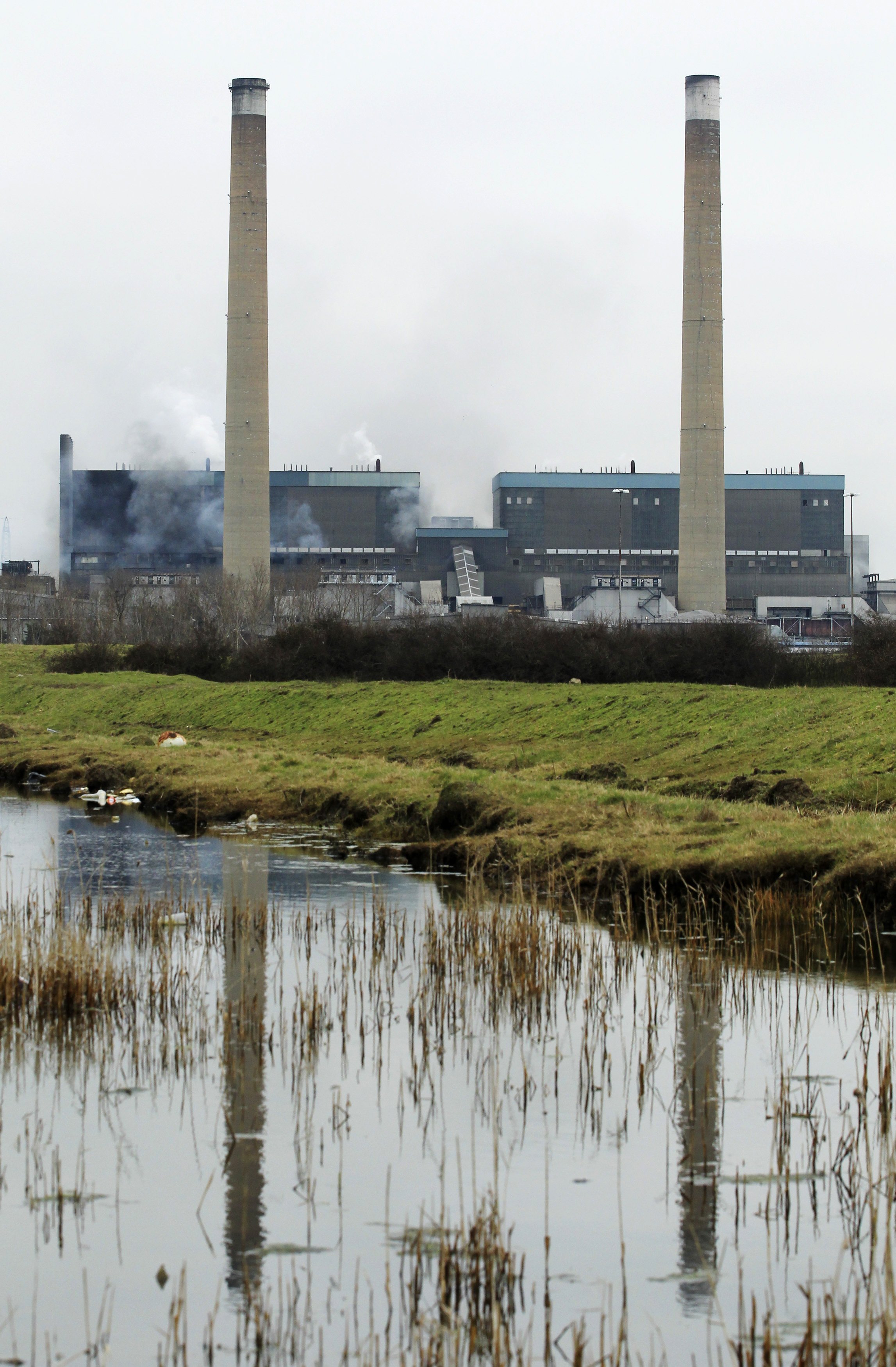 Olivia Harris/REUTERSThe wood-pellet-fired Tilbury power station, located to the east of London, is Britain's largest dedicated biomass plant.
Olivia Harris/REUTERSThe wood-pellet-fired Tilbury power station, located to the east of London, is Britain's largest dedicated biomass plant.
Europe's biggest source of renewable energy is actually terrible for the environment.
We're not talking about wind, solar, or hydroelectric power here. The biggest renewable in Europe is wood pellets.
Burning wood — technically labeled a "renewable" resource since more trees can be replanted and they'll absorb carbon from the air — is the European Union's largest source of "renewable" energy, and will continue to be through the year 2020, according to the European Parliament.
Yet using wood biomass in power plants is heating the atmosphere faster than using coal does, a deeply reported Climate Central investigation found.
In 2013 alone, Europe burned 40 billion pounds of wood pellets for bioenergy, making up 79% of the world's consumption, according to the European Biomass Association.
Companies are converting their power plants from coal to wood across Europe to meet renewable energy goals, Climate Central reported, and the biggest driver is government subsidies.
This is because the European Union classifies wood-generated electricity as "carbon neutral," so companies end up reporting far fewer emissions than their factories are actually generating.
Climate Central looked specifically at Drax Power Station in England, which is the largest power plant switching from coal to wood in Europe. But when Drax's boilers burn wood, they release 15% to 20% more carbon dioxide than when they burn coal, Climate Central's analysis found — amounting to millions of tons of CO2 per year for what people are calling a "renewable" power source.
The theory is that planting more trees can capture the carbon that's released when trees are burnt and cut down for biomass. But the problem is that takes a lot longer than current EU definitions assume for that process to actually come full circle. A report from the Natural Resources Defense Council says it could take up to a century to repay the carbon debt that's released when trees are burned for electricity.
And that's if new trees are planted to replace the ones that were cut down.
So while wood biomass is technically renewable, it's not on a scale that's fast enough to make up for the pollution burning it causes in the short term.
During that time the extra carbon dioxide is lingering in the air, contributing to climate change and heating up the planet. It's also not being counted by the European Union — meaning their greenhouse gas output is likely much higher than they say.
"For mitigating climate change," Duke University researcher Stephen Mitchell told Climate Central, "it makes much more sense to just continue to let [the trees] grow."

































